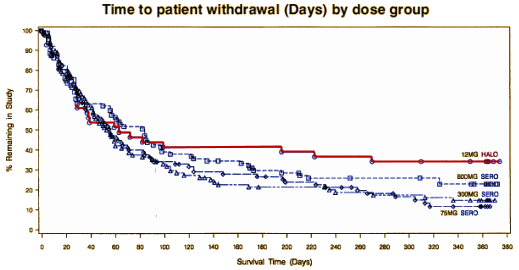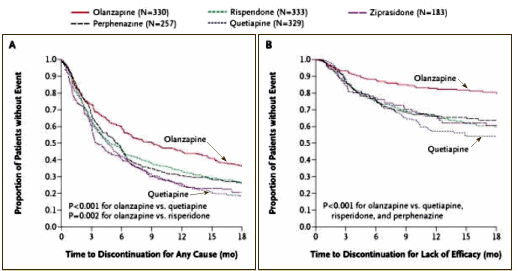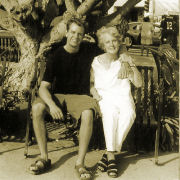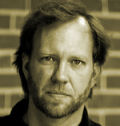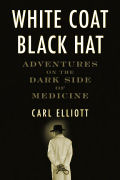The Dan Markingson case is one of those that asks us all to re-examine our beliefs. Such cases can be a screen on which to project our pre-existing thoughts or it can be a new page. Whichever way you take it – the true drama of his suicide, the pictures of his childhood posted on the Internet, the anguish of his mother, the struggles of his champions – all add a layer of reality to the issues often seen from a greater distance. Tueday morning, I worked in a busy clinic seeing patients, and this case was sitting on the side of my mind. I had been trying to focus on what aspect was the most compelling to me. I knew it wasn’t all the major controversies that immediately come to mind, things we could all list. Carl Elliot does a fine job of cataloging them in The Deadly Corruption of Clinical Trials. And it wasn’t the absurdities that I [and everyone else] mentioned; allowing a patient declared incompetent to suddenly become competent to sign on to a trial; putting someone whose mind was filled with the kind of thoughts listed in an earlier post [the rightest of causes…] on a blinded, fixed dose of medication; moving him to a halfway house when there’s no evidence that he was halfway anywhere; ignoring his mother’s concerns; putting him in a study measuring how long people stay on a medication when he was essentially sentenced to keep taking it; etc. Those things are obvious.
Driving home, I was thinking about the snippets that had stayed with me from reading about Dan again yesterday. One was an AstraZeneca email in Carl’s article that grabbed my attention when I first saw it [
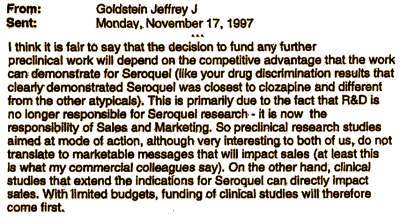
Two plus years ago I read that in horror [now, it comes as no surprise at all]. Another thing that lingered was the clip in the video where the clinical coordinator said she "‘didn’t do anything that was wrong or against the law.’ She said Mary Weiss was very controlling. ‘You don’t just kick someone out of a study because the mother wants it to happen.’ Kenny said Dan was doing well. ‘The guy had pretty many stressors going on. Mom was very much interfering with things.’ Kenny said that the fact that Dan committed suicide near Mother’s Day ‘was a really strong message.’" And then there was this remark from the University’s Senior Director of Communication about Scientific American writer Judy Stone, "I looked her up and can’t tell if she’s a whacko or not. I get nervous about anyone who would pay attention to Carl." But this was the loudest thing, "In his deposition, Olson said he saw Dan approximately six times from the date he was admitted in November until he committed suicide in May" followed by "In late April 2004, as Dan’s stay of commitment was about to expire, Olson recommended extending it for another six months — the duration of the CAFE study. He noted that Dan still had ‘little insight into his mental disorder’ and might ‘place himself at risk of harm if he were to terminate his treatment’.’"
It’s the lack of engagement of Dan that haunts me in this story – from AstraZeneca, to Dr. Olson, to the clinical coordinator, to the university – or the implication that his mother was being a royal pain, or that she had something to do with his suicide, or that Judy Stone was a "whacko," or that Carl Elliot doesn’t deserve to be listened to, or even that "it’s a tragedy, not a scandal." Who was engaged with Dan – the young man who was living among telepaths, mind readers, and hybrids, absent emotional attachments?
At the halfway house, Dan often stayed in his room for days. On March 26, 2004 nearly four months after his discharge from Fairview, his thoughts were still "delusional and grandiose," according to a social worker’s note. An occupational-therapy report from April 30 detailed Dan’s condition: "Personal appearance disheveled. Isolated and withdrawn. Poor insight and self-awareness." Entries in a personal journal that Dan kept during this period don’t show any obvious changes, suggesting that he was improving little, if at all…
Mercifully, Dan’s clinical trajectory is uncommon. No matter what you choose to call it, it’s cases like this that lead Emil Kraepelin to the name, Dementia Praecox – a young adult afflicted in the prime of life who was never to be the same and followed a downhill course. We don’t think of things that way anymore. People with this illness used to just disappear into the large sanatoriums – sometimes for life. Now, while there are still controversies aplenty, we have different expectations. And if you’ve been involved in the treatment of these patients, you know that the outcome doesn’t always have a linear relationship to the quality of care.
There are levels of the approach to this mental illness that I thought were best conceptualized in the era of the community mental health movement in terms of prevention. Primary prevention is anything that one does to prevent the development of illness. Don’t smoke. Get immunizations. etc. In the case of psychosis, Patrick McGorry in Australia and others are attempting to identify these patients prior to a psychotic break. It’s a laudable endeavor that’s not ready for prime time. And there’s controversy [as always] about what one would do if you actually could do that. But that’s not to say that it’s not valuable research.
Secondary prevention is efforts to minimize the impact of illness once it appears. With an acute psychotic break, modern treatment involves the use of antipsychotic medication, sometimes protective custody, and psychosocial interventions with an eye always on the future. The issue of protective custody is primarily in the hands of the legal system. And while the use of medication is the subject of endless armchair debates, it’s pretty standard fare. And it’s a big part of the debate about the case at hand about Dan Markingson.
Tertiary prevention focuses on prevention of recurrence and the prevention of deterioration. When people with psychosis have either a course including recurrent psychotic illness or persistent signs of illness, should they stay on medication all the time, intermittently, not at all? Big controversies, and a factor in the debate are the side effects and potential irreversible long term effects of the drugs. That’s why we were all so hopeful when the atypical antipsychotics appeared: prevention of recurrence? prevention of deterioration? With no down side? That was not to be. And we knew that by the time Dan’s illness came along. So did AstraZeneca – about their own drug Seroquel. They knew it from their own Study 15 that they had already buried:
Clearly, the patients preferred Haldol over Seroquel. It’s clear as a bell. And AstraZeneca knew CATIE was coming and they weren’t going to look good…
… so they had CAFE going in hopes of looking better. But these were maintenance studies – what medication will patients best tolerate long term after responding to acute treatment? It’s hard, from the paucity of information available, to see where Dan had ever responded in the first place:
At the halfway house, Dan often stayed in his room for days. On March 26, 2004 nearly four months after his discharge from Fairview, his thoughts were still "delusional and grandiose," according to a social worker’s note. An occupational-therapy report from April 30 detailed Dan’s condition: "Personal appearance disheveled. Isolated and withdrawn. Poor insight and self-awareness."
The treating psychiatrist even said he hadn’t responded:
"In late April 2004" … "He noted that Dan still had ‘little insight into his mental disorder’ and might ‘place himself at risk of harm if he were to terminate his treatment’."
So:
The CAFE Study was driven by commercial interests rather than to gain medical knowledge.
It was a maintenance study for patients who had responded to medications. Dan had been admitted several days before with a florid psychosis of several months’ duration. There is no evidence that he responded to treatment. There was nothing "maintenance" about his case.
He was a success story for the trial because he hadn’t stopped the medication. That was a complete sham, because he couldn’t stop the medication under threat of commitment.
His clinical condition certainly didn’t improve over the ensuing six months. If anything, he was deteriorating.
Those are the things people howl about, and howl they should. But what stayed with me was the lack of genuine engagement of the case by the clinicians involved. The psychiatrist saw him only six times in as many months? The clinical coordinator "said Dan was doing well"? Dan was hardly "doing well." No one was looking.
Psychiatrists and psychiatry take a lot of hits from a lot of places – some deserved, some not so deserved. But the bottom line if you are a psychiatrist is that you become genuinely engaged with the case at hand and you bring everything possible to bear to see that the patient has the best shot at the best recovery that can be achieved, even in the face of persisting disability. This case didn’t even come close to that standard. Dan was pretty disturbed and his recovery was anything but guaranteed, but the care he got didn’t approximate his best shot – not even a good shot. He spent 6 moths languishing in a halfway house on a weak-sister medication that was having, at best, a sub-optimal effect. And he succumbed to a violent psychotic suicide in plain view, a testimony to the inadequacy of the treatment. Such things can happen in the best of circumstances, but this was the nowhere close to the best of circumstances – a patient under care who was neglected.
The term burn-out has become part of our daily conversational lingo. It means that a person who has been doing a difficult job has lost whatever extra drive it takes to keep them at the task. The term actually originated in describing the people who work with chronic psychotic patients. It’s hard work, to say the least, and the rewards are intangible – preventing deterioration, sticking with people through relapses, disillusionment with outcomes. When burnout comes, you can feel it, and the right thing to do is move on. You gave what you had until you couldn’t do it anymore. Good for you. Now go do something else. The alternative is to stay around and develop a kind of hardened indifference you can spot from twenty yards. Most people reading this who are in a mental health field know exactly what I’m talking about from seeing it, and perhaps even living it. But some people are able to keep going without ever burning out. They are amazing – the real saints among us, in my humble opinion.
Often, when something like this happens, we start looking for burnout – people who aren’t engaging because they shouldn’t be doing the job any more [or maybe in the first place]. It’s usually not malice, more something like battle fatigue. Another thing to look for is some hopelessly underfunded, beleaguered system that couldn’t possible do the assigned task. That’s all to frequent in mental health systems. But neither burnout or understaffing appear to be the case here. This is something else that shouldn’t ever be in the mix – corporate greed. And in this case, it filtered down to the people doing the clinical trial itself and resulted in negligence in medical care, failing to engage the case at hand. It is a scandal that deserves full investigation and exposure, at a minimum – and maybe its days in court. Finally, Dan’s Law is bigger than Minnesota…

